Access to Family Planning Services
The "Expanding Access to Family Planning Services" program, implemented by Swabhiman Samiti with support from Global Health Strategies Emerging Economies Pvt. Ltd. (GHSEE), was designed to enhance access to family planning services in Uttar Pradesh. The program aimed to mobilize community champions, strengthen partnerships with government bodies, and utilize media platforms to raise awareness about family planning services, addressing gaps in service delivery and improving community engagement.
Key Highlights:
- Target Area: Uttar Pradesh, focusing on community-based engagement and capacity building.
- Community Champions: 20 champions were trained to advocate for family planning at the grassroots level.
- Government Linkages: Strong partnerships were built with local government bodies to address family planning service delivery challenges.
- Outreach Impact: The program reached over 1,000 individuals, improving awareness and advocacy around family planning in the region.
SS




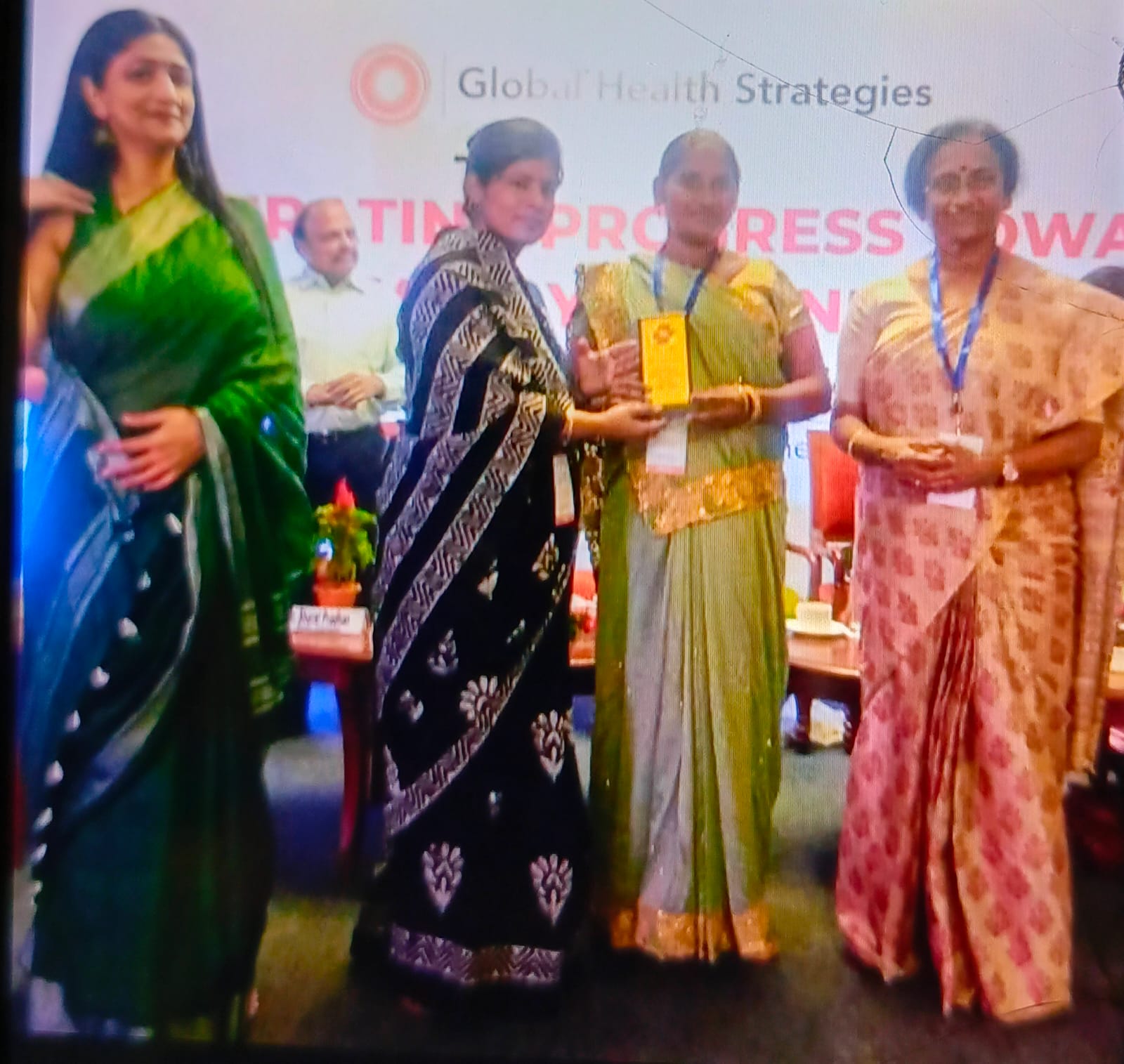

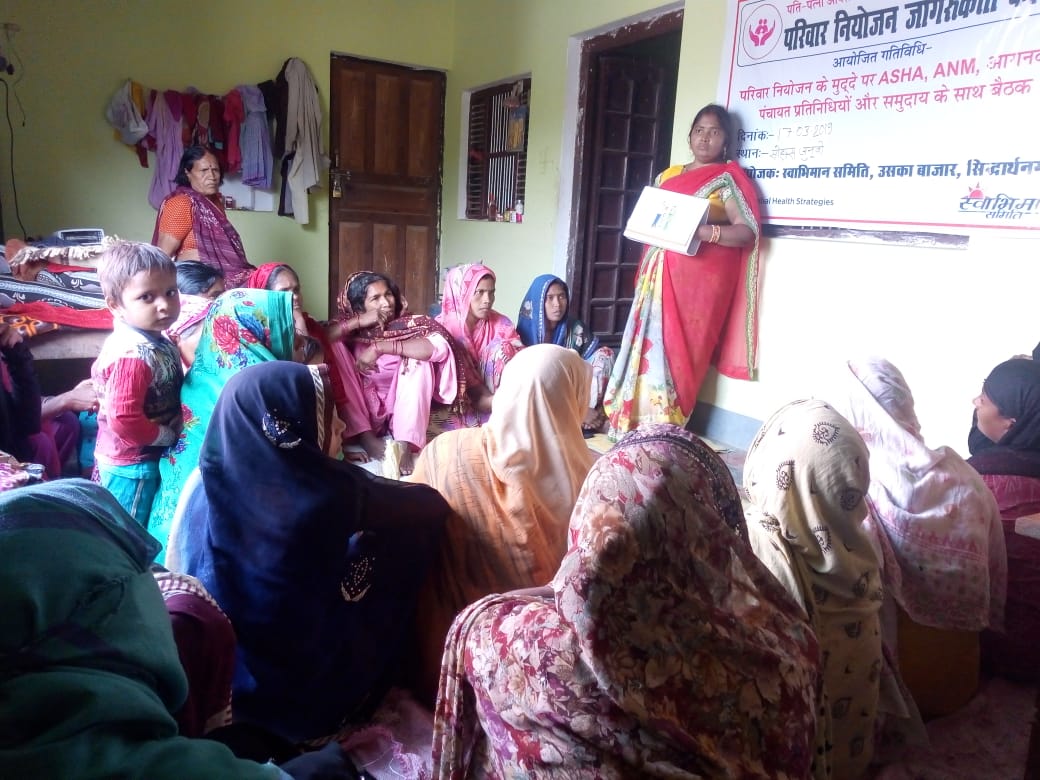
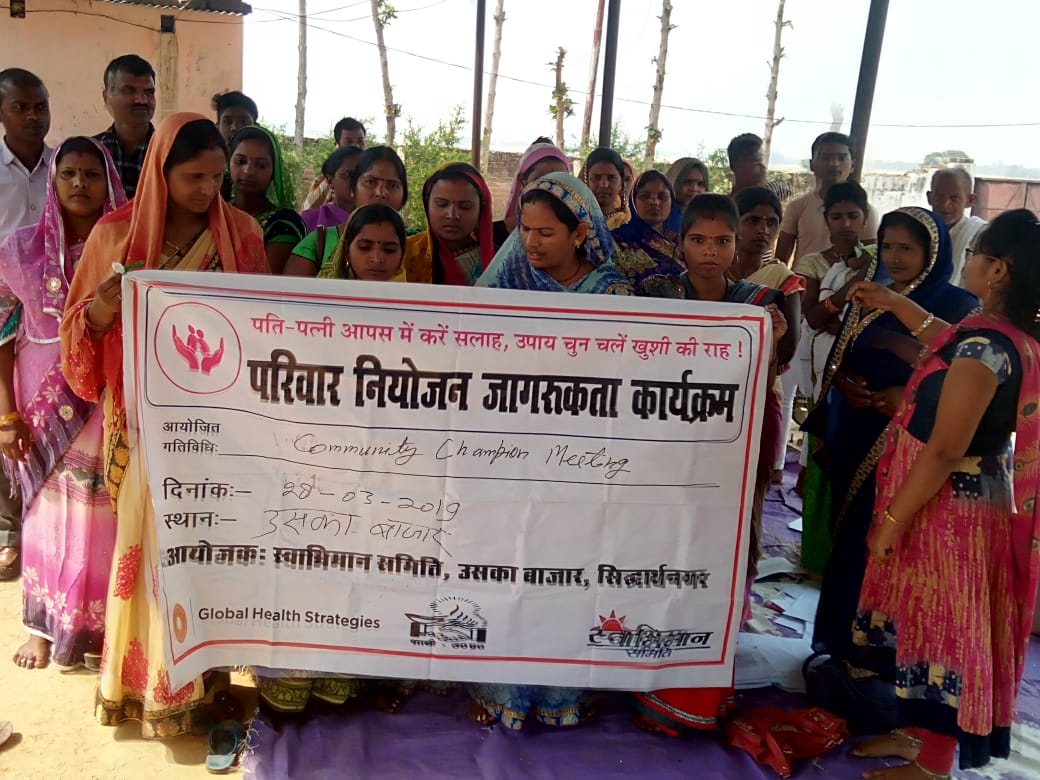


Project Details
- Project Name:
- Access to Family Planning Services in Uttar Pradesh
- Thematic Area:
- Health
- Outcome:
- Improved access to family planning services through CSO engagement.
Funded By
- Funder Name:
- Global Health Strategies Emerging Economies Pvt. Ltd. (GHSEE)
- Implementing Body:
- Swabhiman Samiti
Implemented By
Work Place
- Place of Work:
- Uttar Pradesh, India
- Year:
- 2019
1. Project Overview
The "Expanding Access to Family Planning Services" program, implemented by Swabhiman Samiti with the support of Global Health Strategies Emerging Economies Pvt. Ltd. (GHSEE), aimed to improve access to informed and expanded contraceptive choices across Uttar Pradesh. The program sought to mobilize CSOs, community champions, and key stakeholders to increase demand for family planning services, strengthen feedback mechanisms with government bodies, and address gaps in service delivery.
2. Objectives
The primary objectives of the program were:
- Create a Pool of 20 Community Champions: Empower and train 20 community champions to advocate for family planning services at the grassroots level.
- Strengthen Linkages with Government Officials: Advocate for resolving gaps in service delivery and supplies by improving coordination with local and district-level government officials.
- Utilize Media Platforms for Advocacy: Raise awareness, share success stories, and advocate for improved family planning services through media platforms.
3. Background and Rationale
Family planning services in Uttar Pradesh face multiple challenges, including low awareness, inadequate service delivery, and limited community involvement in the planning and execution of health programs. The lack of access to reliable and diverse contraceptive options is exacerbated by socio-economic and cultural barriers. This program aims to address these challenges by engaging local communities, advocating for better government policies, and using media to spread awareness. By building a network of community champions and strengthening government partnerships, the program seeks to improve the availability and quality of family planning services in underserved areas.
4. Planned Outreach
The program targeted 20 community champions across several regions in Uttar Pradesh. These champions were tasked with:
- Advocating for family planning at the grassroots level.
- Engaging with local government officials and stakeholders to raise awareness and address service delivery gaps.
- Using community platforms such as village health and nutrition days (VHND), PRI meetings, and Saas-Bahu Sammelans to disseminate family planning information.
Additionally, media platforms were used to amplify the voices of community champions and share success stories, reaching a broader audience and promoting sustainable family planning practices.
5. Key Strategies
- Community Champion Mobilization: Train and equip 20 community champions with the knowledge and tools to advocate for family planning services.
- Strengthening Government Linkages: Facilitate regular meetings with local and district-level officials to discuss and address challenges in family planning service delivery.
- Media Engagement: Utilize local print, electronic, and social media to raise awareness about family planning services and highlight the efforts of community champions.
- Capacity Building: Empower community champions with the knowledge to communicate effectively about family planning methods and reproductive health rights.

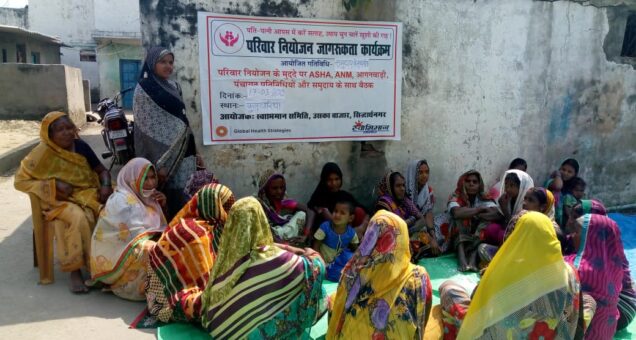
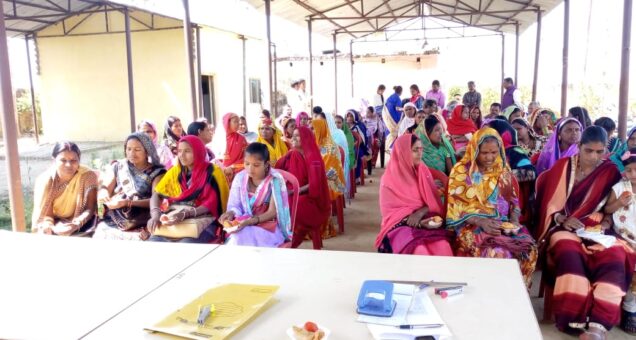

6. Core Activities
Objective 1: Create a Pool of 20 Community Champions for Family Planning Advocacy
- Training Community Champions: Conducted training sessions to provide champions with the knowledge to advocate for family planning services and effectively communicate with local officials and communities.
- Meetings with Local Government Officials: Facilitated quarterly meetings with local administrators (e.g., Gram Pradhans, ANMs) to discuss challenges and advocate for improved service delivery.
- Information Dissemination: Distributed IEC materials and shared family planning information at local events, including health days and village meetings.
Objective 2: Strengthen Linkages with Government Officials
- Quarterly Meetings with Government Officials: Held meetings with block, district, and state-level officials to address issues in family planning services and supplies.
- State-level Advocacy: Advocated for improvements in family planning services and supplies during state-level meetings.
- Engagement on Health Days: Utilized key health days (e.g., World Population Day) to promote family planning awareness and distribute IEC materials.
Objective 3: Utilize Media Platforms for Dissemination of Success Stories
- Media Engagement: Conducted small group meetings with local media representatives to discuss family planning issues and share success stories.
- Success Story Publication: Published success stories and interviews with community champions across local media platforms, including print, electronic, and social media.
7. Achievements and Outcomes
- Empowered 20 Community Champions: Successfully trained 20 champions who are now actively advocating for family planning at the grassroots level, conducting regular meetings with local government officials.
- Strengthened Government Partnerships: Facilitated ongoing communication between community-based organizations and government officials, ensuring better service delivery and resource allocation for family planning.
- Increased Awareness and Outreach: Reached over 1,000 individuals through community engagement efforts, including meetings, health days, and media campaigns.
- Media Coverage: Secured the publication and broadcast of five community champion success stories through local media, raising awareness of family planning services and highlighting their importance in the community.
- Improved Family Planning Services: Continuous advocacy resulted in better coordination with local health service providers, ensuring the availability of family planning supplies and addressing service delivery challenges.
8. Conclusion
The Engaging Civil Society Organizations (CSOs) to Expand Access to Family Planning Services program has made significant strides in improving family planning access in Uttar Pradesh. Through the empowerment of community champions, the strengthening of government linkages, and media advocacy, the program has successfully increased demand for family planning services and highlighted the need for continuous improvements in service delivery. The program’s comprehensive approach, which combines grassroots mobilization, advocacy, and media engagement, has created a foundation for sustained family planning efforts in the state, ensuring that family planning remains a priority issue for all stakeholders involved.
